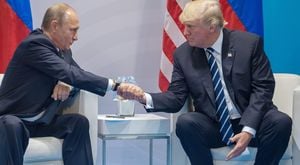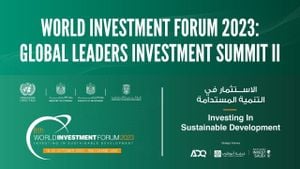Pakistan is making significant moves to request the extradition of billionaire property tycoon Malik Riaz Hussain from the United Arab Emirates amid mounting corruption allegations. The National Accountability Bureau (NAB), Pakistan’s anti-corruption watchdog, announced the investigation, asserting Riaz is under scrutiny for fraud, deceptive practices, and cheating the public at large. Riaz, the owner of Bahria Town, the largest private real estate firm in the country, is accused of selling land without proper ownership permits, intensifying his legal woes.
This development closely follows the recent sentencing of former Prime Minister Imran Khan to 14 years in prison. Khan was convicted for illegally accepting land from Riaz to create the Al-Qadir Trust educational institution—a charge he and his legal team vehemently contest, claiming political motivation behind the conviction. Analysts view the extradition effort as a clear message from Pakistan’s military and government aimed at other influential figures linked to Khan, who remains a divisive personality since his ousting.
Taking to social media as the extradition request emerged, Riaz described the government's actions as blackmail. He accused authorities of fabrications, stating he had relocated abroad to evade becoming a "political pawn." Furiously, he asserted, “No matter how much you oppress me, Malik Riaz will not testify!” His statements echo the growing tensions between high-profile business figures and the Pakistani state.
During a recent press conference, Defense Minister Khawaja Muhammad stated, “The state will take action against Malik Riaz. Efforts will be made for his extradition, and the matter will be discussed at the government level.” He acknowledged the similarities with the £190 million graft case involving Riaz and called for accountability. Riaz has faced investigations before; most recently, he settled with the UK's National Crime Agency over funds linked to property deals but was not found guilty.
The minister also emphasized the urgency of the situation: “We have an extradition treaty with the UAE. A mafia cannot be allowed to run as a parallel state.” This sentiment articulates the government's stance against perceived corruption and its political will to pursue accountability consistently.
Pakistan’s legal challenges against Malik Riaz are compounded by the NAB's advisory against investing in his latest real estate venture, which the bureau warned could involve money laundering. Recent investigations have indicated irregularities and lack of transparency prevalent over the last several decades of Riaz’s business practices, leading to concerns over how state authority has historically handled such cases.
Quoting Khawaja, “This Malik Riaz saga has been running for the last 30 years and he has used his influence everywhere.” This reflection highlights the hurdles faced by past governments when trying to rein-in powerful figures, signaling the current administration's transition toward more rigorous enforcement of laws.
Despite the allegations, both Riaz and Khan have denied any wrongdoing, maintaining their innocence amid the claims. Khan emphasizes he and his wife were merely trustees of the charitable trust and did not receive any illicit benefits, asserting the claim has been manipulated for political gain.
Khawaja's remarks indicate the current government is prepared to intensify its crackdown on influential figures who have historically evaded accountability. “If someone has this misunderstanding or wishful thinking, they shouldn’t expect to get any relief,” he cautioned, signifying the government's resolve to have Riaz answer for his alleged misdeeds.
The political climate corroborates the complexity of accountability underpinned by business interests. The ramifications of the actions against Riaz extend beyond individual cases and indicate broader trends of seeking justice and transparency, particularly against influential oligarchs who have long been shielded from the law.
Riaz's statement of resistance, contending, “Malik Riaz will not be used against anyone nor will be blackmailed,” showcases the weight of this moment both for himself and for Pakistan’s political and legal spheres. His experience encapsulates the struggle of many business moguls entwined with the country’s shifting political dynamics.
With the backdrop of the Al-Qadir case and Khan’s conviction, the government is positioned for heightened scrutiny of Bahria Town and Riaz’s assets. This may signal the start of increased investigations within Pakistan’s real estate sector, imposing severe challenges to Riaz’s legacy and business empire.
Pakistan’s extradition request is part of its renewed commitment to uphold the rule of law, indicating no individual will remain insulated from accountability. “The law will take its course,” Minister Khawaja reiterated, highlighting the state’s determination to pursue justice.
Only time will tell how these developments shape the future of Pakistan’s political and economic fabric, but one thing is clear: Malik Riaz and the powerful elite are now facing the might of the state seeking accountability.



